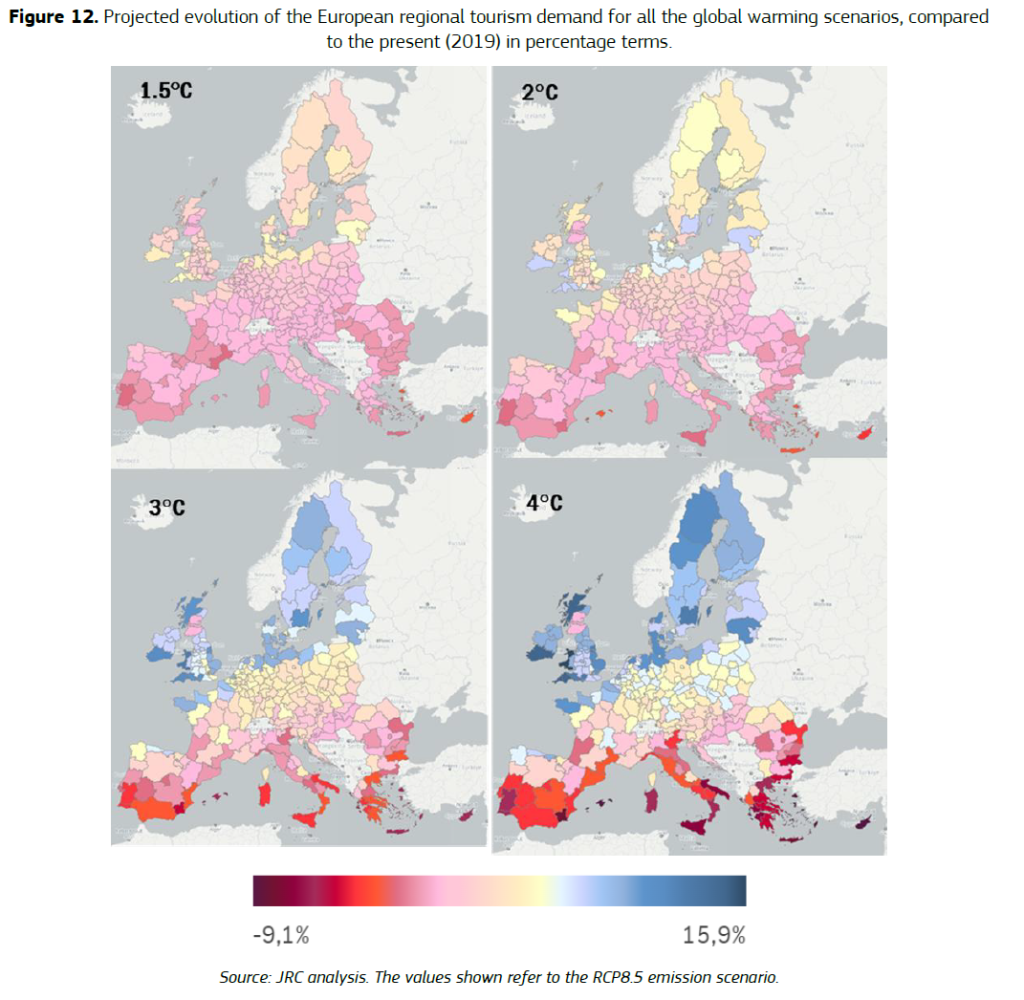
Or how we let ourselves slowly cook….
This year, in 2023, a startling study was published by the European Commission’s Joint Research Centre. The English-language version of the report can be found here.
What is most striking about the findings is that regardless of the IPCC scenario that becomes reality, an increase in tourism is expected. Even more perplexing is that the more the planet warms, the more positive the impact seems to be. The last paragraph of the report contains the following perplexing statement, “The overall expected impact on demand for European tourism is considered positive, with an expected increase of 1.58% under the most extreme warming scenario…” This refers to a scenario predicting a frightening 4-degree temperature rise.
Fortunately, the authors themselves nuance it. They foresee a shift of tourism from south to north, with potentially negative consequences for current southern tourism hotspots. At the same time, this suggests a growth in tourism in northern areas such as Wales, the Netherlands, Germany and the Scandinavian countries. But is this really positive? Are we reducing overtourism in the South, or just creating new bottlenecks elsewhere?

The authors also criticize their own methodology used. The Tourism Climate Index (TCI), which is based on a handful of weather parameters, proves insufficient to capture the full complexity of tourism.
Doubts …
But more important is the lack of nuance about the impact of all those scenarios. Or rather, they are assumptions (climate change and its impact on tourism) on assumptions (climate change itself). What about the various tipping points in this issue? What if the ice caps melt much faster? What if the various currents in oceans and skies stop or reverse? What if …
Let’s be specific: where will all those extra tourists in the Netherlands be housed if large parts of the country are likely to be flooded with a 4-degree temperature rise?
Moreover, the study offers no connection to broader trends. Climate migration is already a pressing topic on social media, with people wondering where to live safely in a world that is rapidly changing. What about drinking water resources in regions where scarcity is imminent? Will local populations be willing to share their scarce resources with tourists? And what are the economic implications? Can we stick to the mantra of unlimited growth?
Finally, let’s ask an ethical question: Is it moral to emphasize the growth of the tourism industry while millions of people may (will) suffer the raw consequences of climate change?
Climate change probably not so good for tourism after all!
In short, the idea that climate change is a boon for tourism seems simplistic and blind to the larger context. Would it not be wiser to invest European funds in research and projects that can actually make the tourism industry carbon-neutral, or even better, regenerative? What we really need are studies and initiatives that focus on a sustainable future, rather than seducing us with dreams of a tourism boom in a world that may be about to implode.

